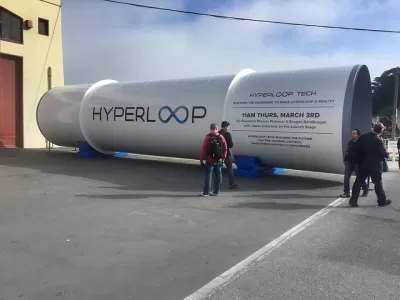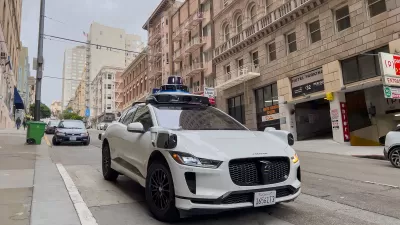The "fear of missing out," also known as FOMO, is no way to make transportation decisions, according to this article.

"More likely than not, your elected officials are basing mobility policy decisions not on cost-benefit analysis or strategic foresight, but on a classic modern insecurity: FOMO."
That's David Zipper's theory, explained in an article for CityLab. When transportation decision makers start make the FOMO mistake, cities get saddled with expensive demonstration projects for autonomous vehicles that show off more than provide benefits for residents.
There are other kinds of projects that move forward as a result of FOMO, according to Zipper, like the Hyperloop of the Boring Company, both of which have made progress, in iterative forms somewhat resembling their original ideas, in Las Vegas, Chicago, Pennsylvania, Missouri, and a route connecting Baltimore and Washington, D.C.
"The problem with these projects," writes Zipper, "is that they are the policy equivalent of Instagram glamour shots, crafted to elicit admiration and envy rather than improve lives. And, like the mayor of Springfield in TheSimpsons who is determined to get a new monorail before Shelbyville does, their backers insist on unveiling the shiny new technology ahead of anyone else."
FULL STORY: Why FOMO Is the Enemy of Good Urban Mobility Policy

Maui's Vacation Rental Debate Turns Ugly
Verbal attacks, misinformation campaigns and fistfights plague a high-stakes debate to convert thousands of vacation rentals into long-term housing.

Planetizen Federal Action Tracker
A weekly monitor of how Trump’s orders and actions are impacting planners and planning in America.

Chicago’s Ghost Rails
Just beneath the surface of the modern city lie the remnants of its expansive early 20th-century streetcar system.

Bend, Oregon Zoning Reforms Prioritize Small-Scale Housing
The city altered its zoning code to allow multi-family housing and eliminated parking mandates citywide.

Amtrak Cutting Jobs, Funding to High-Speed Rail
The agency plans to cut 10 percent of its workforce and has confirmed it will not fund new high-speed rail projects.

LA Denies Basic Services to Unhoused Residents
The city has repeatedly failed to respond to requests for trash pickup at encampment sites, and eliminated a program that provided mobile showers and toilets.
Urban Design for Planners 1: Software Tools
This six-course series explores essential urban design concepts using open source software and equips planners with the tools they need to participate fully in the urban design process.
Planning for Universal Design
Learn the tools for implementing Universal Design in planning regulations.
planning NEXT
Appalachian Highlands Housing Partners
Mpact (founded as Rail~Volution)
City of Camden Redevelopment Agency
City of Astoria
City of Portland
City of Laramie





























